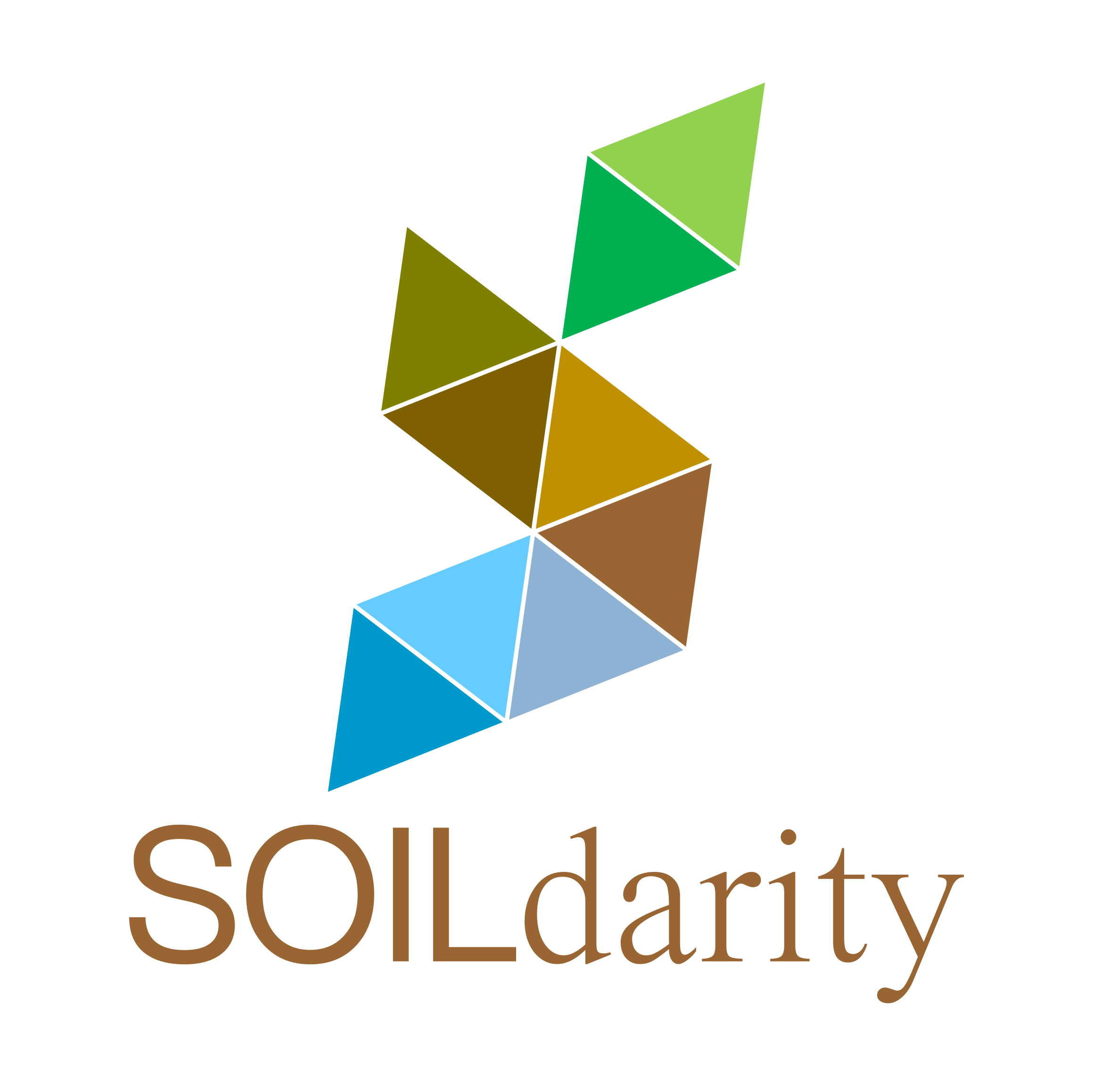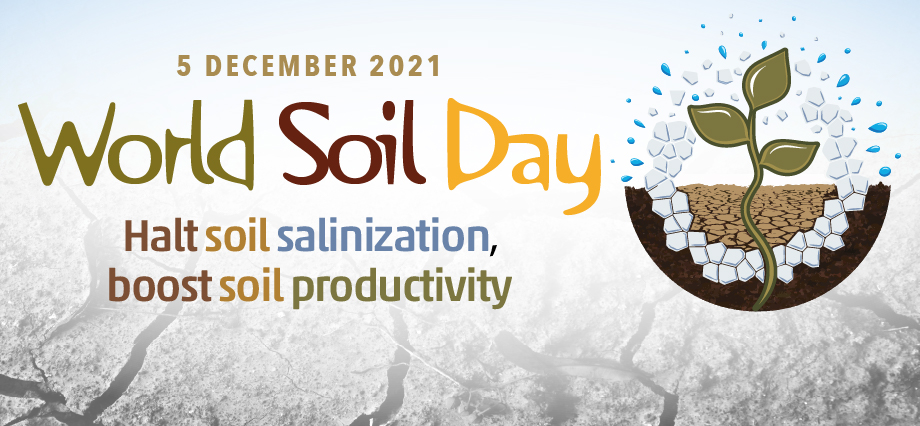The WSD ceremony will be held virtually on 3 December with the participation of Dr Qu Dongyu – FAO Director-General and thousands of soil enthusiasts. Artistic performances and keynotes will animate the ceremony. The winners of the Glinka World Soil Prize and King Bhumibol WSD award will also be announced. An interactive quiz will put your knowledge of salt-affected soils to the test.
Register here | Download the draft agenda
This year, WSD is devoted to raise awareness on the need to halt soil salinization. This can be natural due to the release of salts from rocks, infiltration and evaporation of seawater, or the deposition of salts due to their proximity to coastal areas. Natural salt-affected soils (SAS) harbour rich ecosystems that need to be conserved and protected.
However, salt accumulation can also be caused by unsustainable human activities such as irrigation with poor quality or insufficient water, deforestation, the unsustainable use of fertilizers, or the overexploitation of aquifers in areas prone to marine intrusion, among others. These practices have severe impacts on some of the ecosystem services that soils typically provide, which are critical for sustaining human life and biodiversity, such as reduced agricultural productivity, increased soil erosion, reduced buffering, and filtering capacities against contaminants, and decreased soil fertility and micronutrient availability. SAS contain salts and exchangeable sodium at levels that adversely affect the growth and development of many plants, either directly (due to toxicity), or indirectly (due to effects on soil’s physical properties that restrict root growth and water percolation).
SAS are found all around the world and impact some 833 million hectares of land. This value may grow significantly in the coming years, exacerbated by climate change and unsustainable human activity, so that areas without SAS may be hit. Efforts must be made to understand the processes that lead to the development of SAS, prevent human-induced soil salinisation and sodification, and safeguard soil health for better production, nutrition, robust environments and health – so that no-one is left behind.
Simultaneous interpretation will be available in Arabic, Chinese, English, French, Russian, and Spanish

